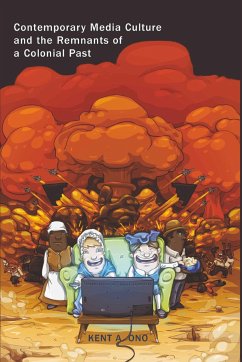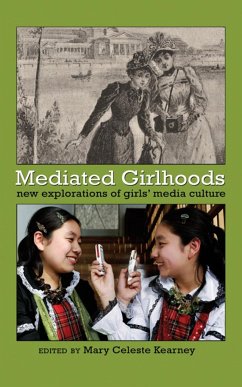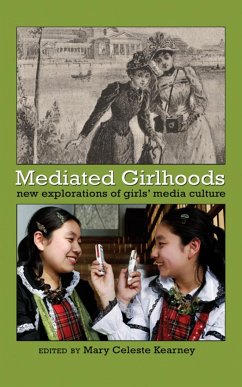
Contemporary Media Culture and the Remnants of a Colonial Past

PAYBACK Punkte
0 °P sammeln!
Contemporary Media Culture and the Remnants of a Colonial Past examines contemporary representations of colonialism, by developing a historically and culturally specific theory of neocolonialism in U.S. media culture. Noting how colonialism never officially ended in the United States, Kent A. Ono draws together race, gender, sexuality, and nation to examine neocolonialism in popular media narratives. The book asks, «What are the lingering traces within contemporary culture that provide evidence not only of what colonialism was but also of what it continues to be today?» Offering five case st...
Contemporary Media Culture and the Remnants of a Colonial Past examines contemporary representations of colonialism, by developing a historically and culturally specific theory of neocolonialism in U.S. media culture. Noting how colonialism never officially ended in the United States, Kent A. Ono draws together race, gender, sexuality, and nation to examine neocolonialism in popular media narratives. The book asks, «What are the lingering traces within contemporary culture that provide evidence not only of what colonialism was but also of what it continues to be today?» Offering five case studies on Buffy the Vampire Slayer, the sale of the Seattle Mariners, Mighty Morphin Power Rangers, Pocahontas, and Star Trek: The Next Generation-and providing current media examples in the introduction and conclusion, the book documents the persistence of colonialism in media culture. White vigilantism, prototypical colonial rescue plots, and cloaked and not-so-hidden anxieties about racial and national miscegenation all contribute towards a continuation of colonialism and a neocolonial mind-set. The book's critical examination from a historical and cultural perspective makes it possible to alter colonialism for future generations.












